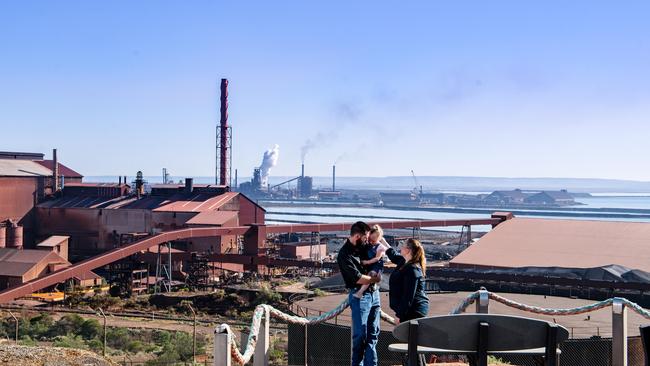The Svitzer tug boat enterprise agreement gives the waterfront and shipping unions the right to virtually manage much of the operation and is not sustainable because its opponents have enterprise agreements that deliver greater productivity.
Unless an enterprise is a monopoly that can pass on bloated costs, uncompetitive enterprise agreements can be a death sentence. Accordingly, longer term the Danish owners of Svitzer must consider their viability in Australia.
Smarter Australian companies have found ways to work directly with their workforces rather than use enterprise agreements.
And smarter unions understand that if an agreement stifles productivity by requiring inflexible employment and/or gives unions effective management control it will destroy enterprises in competitive situations.
Bad enterprise agreements almost wiped out the Whyalla steelworks and destroyed General Motors and Ford in Australia – the federal government refused to continue to subsidise them.
With proper agreements, the subsequent productivity gains would have slashed the need for subsidies. GMH managers pleaded with the unions for months to change the agreements explaining that both workers and managers would both be axed unless the agreements were changed.
Finally, the GMH unions and workers woke up but it was too late. Detroit had decided on closure and would not change its decision so managers and workers lost their jobs and Australia unnecessarily lost a vital manufacturing base.
In the case of Whyalla, a condition of the Gupta rescue was a productivity driven enterprise agreement that returned management control.

But don’t weep for the Danes. The owner of Svitzer is world’s largest container operator, Maersk, which made many tens of billions out of global container shortage during the Covid-19 years.
In 2006, Maersk paid almost $700m to buy the Adelaide Steamship Co’s tug boat operation which dominated Australian ports.
Delighted waterfront and shipping unions discovered that the then Danish management in Australia did not want their Danish parent embarrassed with a high profile dispute.
The unions applied pressure and the foolish Danish executives agreed to ridiculous clauses prescribing inflexible labour rules and high employment levels on each tug. Worse still the unions effectivity obtained a high level of control over who was hired.
If the Adelaide Steam tug boat virtual monopoly had been perpetuated, Svitzer would have been able simply pass on enterprise agreement costs to the shipping lines who then could charge Australian exporters and importers.
But the ports allowed new tug boat entrants and their managers were far more experienced about Australia than the Danes. They demanded to be able to be able to manage their operation.
As a result their costs were lower and productivity higher. Svitzer has been forced out of some ports and is suffering in others.
Finally, the Danes gave their Australian management permission do what they should have done many years ago – try to regain control of the company. In such negotiations pay rates are a side issue. The main issue is the question of who runs the company, work rules, and similar issues. Any goodwill between unions and employers quickly evaporates.
The traditional enterprise agreement negotiating rules in productivity issues requires tough managers and shareholders prepared to accept big losses. It’s an arm wrestle that can last for long periods under the guise of “negotiations”.
Managers can appeal to FairWork but that body cannot intervene unless Australia as a nation is being impacted, which is a high bar.
After the expensive arm wrestle, managements will finally be taken seriously by unions if they threaten to abandon the agreement. Pay rates can be protected when the issue is about productivity and management control. Battered Svitzer finally took that action.
But Burke found the Svitzer action outrageous and is planning to legislate to stop managers with legacy bad agreements using their only powerful weapon to lift productivity.
Assuming Burke carries out his threat Svitzer will continue to be beaten by enterprises with better enterprise agreements. They might deny it but eventually they must exit Australia. The new owner of the boats will virtually start again. The workers and managers will have fat “retirement“ wallets.
In the light of the Burke planned action, companies with bad enterprise agreements need to look carefully at their future because getting unions to agree to the changes required to adapt to change is difficult.
Meanwhile, the Burke declaration means that all the fuzzy statements that will be made at the upcoming summit about enterprise agreements are dangerous traps for unwary managers. Just ask the Danes.
Industry bodies and human resource departments love enterprise agreements. They are fine as long as they allow managers to manage and are flexible enough to allow the company to maximise productivity.
If fair enterprise agreements are to be a feature of the summit then the experiences and lessons of the Danes and other waterfront and shipping enterprises (such as Patricks) plus the waterfront and shipping issues need to be put on the agenda.






In defending one of the worst examples of a productivity reducing enterprise agreement, new Employment Minister Tony Burke has sent a clear message to the management of every responsible enterprise in Australia – signing complex enterprise agreements that go outside simple wage and salary matters is high risk.